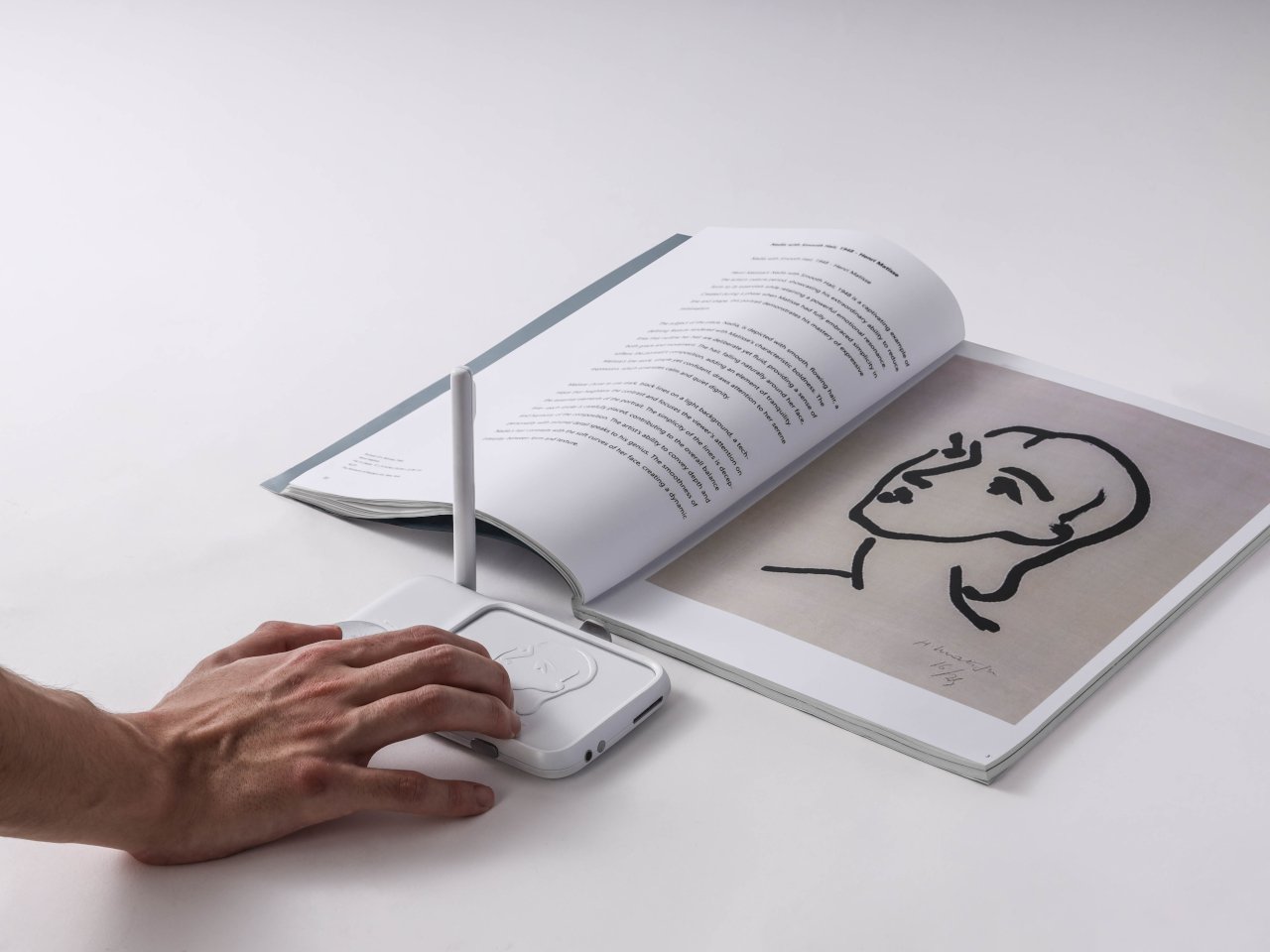Technology
Feel Book Concept Envisions AI-Driven Future for Accessible Reading

Reading is a fundamental activity, yet millions of visually impaired individuals encounter significant challenges in accessing books and educational materials. Traditional solutions, such as audiobooks, often overlook essential visual elements like images and diagrams, which are vital for a comprehensive understanding of content. While e-readers equipped with Braille displays exist, they remain costly and limited, failing to convey the rich visual narratives found in many books.
Young Jin Jeong and Dong il Lee have proposed the innovative Feel Book concept, which seeks to overcome these limitations using advanced artificial intelligence and tactile technology. This visionary device imagines a future where both text and images become accessible, combining intelligent recognition, audio feedback, and a groundbreaking tactile display technology that is not yet available in practical form.
Design Philosophy and Accessibility
The design of the Feel Book revolves around simplicity and integration into daily life. Its minimalist, portable form is designed for easy tactile perception, ensuring that all controls are easily accessible to the user. This approach allows the device to blend seamlessly into various environments, supporting reading without drawing attention to the user’s visual impairment.
One of the most achievable aspects of this concept is the AI camera system. This feature would allow the device to scan physical book pages in real time, utilizing artificial intelligence to recognize both text and images. The text would then be converted to speech, providing clear audio narration that synchronizes with page turning. This creates a natural reading rhythm that closely resembles the experience of sighted readers.
Innovating Tactile Experiences
The most groundbreaking element of the Feel Book concept is its proposed tactile image display. When the AI camera detects illustrations, photographs, or diagrams, the device envisions rendering these images as touchable graphics on its surface. Users could explore the outlines of characters, feel the shapes of diagrams, or understand the composition of photographs through tactile interaction, creating a truly multisensory reading experience.
Nevertheless, the development of such a tactile rendering system remains speculative. Current technology does not yet allow for the dynamic creation of detailed, real-time tactile graphics with the required resolution and speed. Existing tactile displays are often limited in their capabilities, expensive, and unable to translate complex images into meaningful touch experiences.
While this concept may be ambitious, its true value lies in its ability to challenge existing boundaries and inspire new thinking around accessibility. By envisioning what is possible rather than settling for what is practical, Feel Book encourages designers and technologists to pursue solutions that may have seemed unattainable just a few years ago. It serves as a guiding vision for inclusive design, illustrating what the industry should strive to achieve.
The Feel Book concept exemplifies the principle that accessibility can drive innovation for everyone. The tactile clarity, spatial harmony, and intuitive navigation would not only benefit individuals with visual impairments but could enhance the reading experience for all users. This suggests that inclusive design often results in improved functionality and enjoyment across the board.
Ultimately, the Feel Book concept invites us to envision a future where reading is universally accessible, enabling individuals to enjoy every book regardless of their visual abilities. Such speculative thinking expands the boundaries of our understanding of technology’s potential and sparks the innovations that might eventually turn these ideas into reality.
-

 Science3 months ago
Science3 months agoToyoake City Proposes Daily Two-Hour Smartphone Use Limit
-

 Health4 months ago
Health4 months agoB.C. Review Reveals Urgent Need for Rare-Disease Drug Reforms
-

 Top Stories4 months ago
Top Stories4 months agoPedestrian Fatally Injured in Esquimalt Collision on August 14
-

 Technology3 months ago
Technology3 months agoDark Adventure Game “Bye Sweet Carole” Set for October Release
-

 World3 months ago
World3 months agoJimmy Lai’s Defense Challenges Charges Under National Security Law
-

 Lifestyle4 months ago
Lifestyle4 months agoVictoria’s Pop-Up Shop Shines Light on B.C.’s Wolf Cull
-

 Technology3 months ago
Technology3 months agoKonami Revives Iconic Metal Gear Solid Delta Ahead of Release
-

 Technology3 months ago
Technology3 months agoApple Expands Self-Service Repair Program to Canada
-

 Technology3 months ago
Technology3 months agoSnapmaker U1 Color 3D Printer Redefines Speed and Sustainability
-

 Technology3 months ago
Technology3 months agoAION Folding Knife: Redefining EDC Design with Premium Materials
-

 Technology4 months ago
Technology4 months agoSolve Today’s Wordle Challenge: Hints and Answer for August 19
-

 Business4 months ago
Business4 months agoGordon Murray Automotive Unveils S1 LM and Le Mans GTR at Monterey









